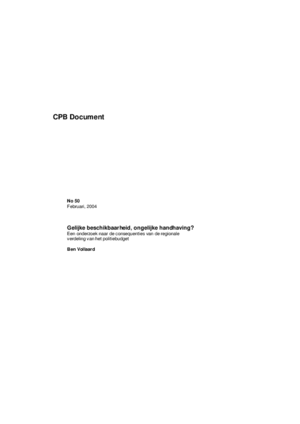Equal availability, unequal enforcement? An analysis of the consequences of the regional allocation of the police budget
Verdeling politiebudget leidt tot regionale ongelijkheid criminaliteitsbestrijding
We are sorry, unfortunately there is no English translation of this page.
An analysis of the policies pursued over the last ten years shows that there is a trade-off between equality in crime fighting and equality in availability of the police. There is such a trade-off since rural regions allocate a similar share of their resources to criminal investigations as urban forces. Given the wish for equality in availability of the police, rural regions receive relatively generous resources given their crime rates. Being available for a relatively dispersed population is a costly issue after all.
As a result of the budget allocation between and within the police forces, rural regions are on an equal footing in terms of availability and can show even better crime clear-up rates than urban regions. With more flexibility in the allocation of the forces' budgets, greater equality in crime fighting could be achieved without greater inequality in availability of the police. That outcome could be achieved by shifting criminal investigation resources from regions with generous resources given their crime rates to regions with scarce resources given their crime rates.
This publication is in Dutch.
